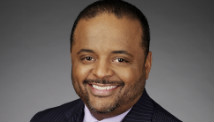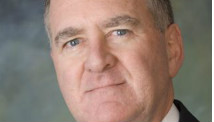QUITO (Reuters) - Ecuadorean President Rafael Correa claimed a re-election victory on Sunday that would allow him to strengthen state control over the OPEC nation's economy and gives a timely boost to Latin America's alliance of socialist leaders.
Correa won 61 percent of the vote compared with 21 percent for former banker Guillermo Lasso, the strongest showing of the seven opposition candidates in the race, according to an exit poll by private firm Opinion Publica.
A separate exit poll by the firm Cedatos showed Correa winning 59 percent of the vote versus 20 percent for Lasso.
"Nobody can stop this revolution," said a jubilant Correa from the balcony of the presidential palace above a crowd of supporters in Quito. "The colonial powers are not in charge anymore, you can be sure that in this revolution it's Ecuadoreans who are in charge."
The electoral authority was expected to release an official quick-count by 7:00 p.m. EST (0000 GMT) based on 30 percent of the votes cast.
Correa, a pugnacious U.S.-trained economist, wants to continue boosting the state's role in the OPEC nation's economy and strengthening the leftist ALBA bloc of Latin American nations that openly oppose the United States.
The only Ecuadorean president in the past 20 years to complete a full term in office, Correa is admired for bringing political stability to a nation where leaders had been frequently toppled by violent street protests or military coups.
"He has breathed new life into the country with the infrastructure and social programs. He has allowed the country to recover its dignity," said Rosa Patino, 40, a municipal worker in Quito.
Opposition leaders call Correa a dictator in the making who is quashing free speech through hostile confrontation with the media and squelching free enterprise through heavy taxation and constant regulatory changes.
His success hinged in part on high oil prices that allowed for hefty government spending, including providing cash handouts to 2 million people, and spurred solid economic growth.
Correa is now on track for a decade in office, rare stability in a country where three presidents were pushed from office by coups or street protests in the decade before Correa took power in 2007.
He is already the longest-serving president since the return to democracy in the 1970s following a military dictatorship.
"Instead of a weakening of our power, what we have is a consolidation of support," he said at a news conference.
DIVERSIFY ECONOMY
Correa hopes to diversify the economy away from oil and win over investors who turned their backs on Ecuador after he defaulted on $3.2 billion in bonds and forced oil companies to sign contracts giving more revenue to the government.
Investors will be watching Correa's new term for signs he is willing to compromise to bring in investment needed to raise stagnant oil production, boost the promising but still nascent mining sector, and expand power generation.
The other six opposition candidates include former Correa ally Alberto Acosta, former President Lucio Gutierrez and banana magnate and five-time presidential candidate Alvaro Noboa.
Ecuadoreans also chose a new Congress on Sunday.
The ruling Alianza Pais party was expected to win a majority of the legislative seats, up from around 42 percent.
That would let Correa push ahead with controversial laws including a plan to create a state watchdog to regulate television and newspaper content, without having to negotiate with rivals.
The results of the vote for Congress are not expected to be known for several days.
Correa spent weeks on the campaign trail, from indigenous villages of the Andean highlands to urban slums in the bustling port city of Guayaquil, singing and dancing to play up an image of youthful energy.
An avid cyclist, Correa filmed one campaign spot showing him changing out of a sharp suit into biking clothes and then riding his bike over mountain peaks and past tropical fishing villages to show the improvement of roads under his leadership.
Correa never shies away from a fight, be it with international bondholders, oil companies, local bankers, the Catholic Church or media that criticize his policies.
His criticism of the U.S. "empire" and his clashes with foreign investors and the World Bank have fueled Correa's popularity as a strong-minded leader who stands up to foreign powers that many say meddled in Ecuador's affairs for decades.
(Additional reporting by Jose Llangari and Eduardo Garcia in Quito and Yuri Garcia in Guayaquil; Editing by Kieran Murray and Eric Beech)


